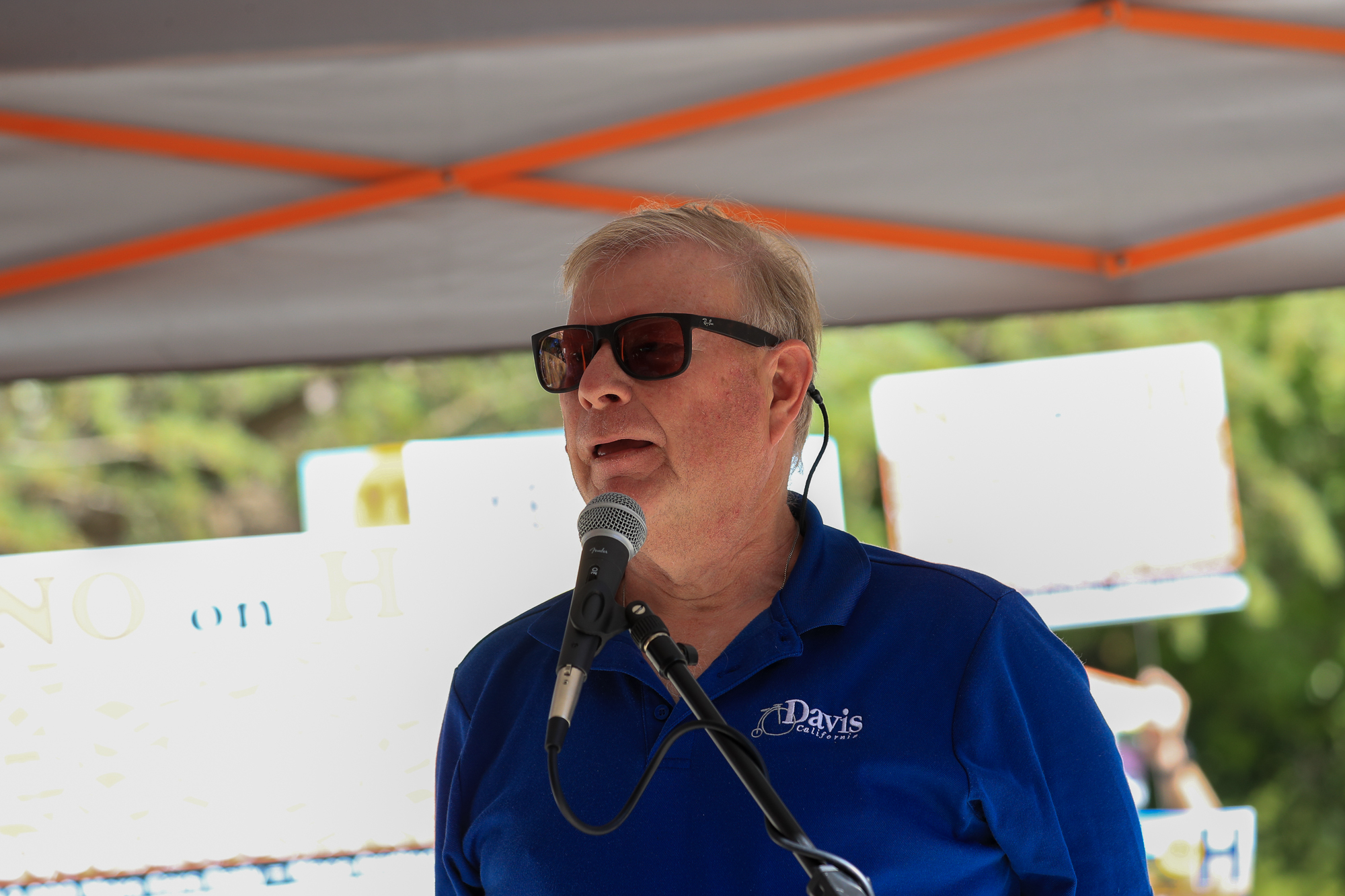
 By David M. Greenwald
By David M. Greenwald
Executive Editor
Davis, CA –Dan Ramos has now conceded that Measure H will fail, expressing disappointment in the outcome and the low turnout, offering the belief that with larger turnout, there might have been a different result.
“Obviously we are disappointed with the outcome on Measure H. We believe that it is more reflective of low voter turnout than the sentiment of the community overall. Had voter turnout been greater, we think the result would likely have been different. We continue to believe in our project and the many benefits it would bring to Davis,” Ramos said.
Early on Wednesday, Gene Endicott, spokesperson for the Yes on H campaign, told the Vanguard with a lot of ballots still outstanding, the campaign was going to withhold comment until things become more clear. Endicott on Thursday morning via email indicated that the campaign will have more to say later.
There have been no new tallies posted on the county website since the one just before 1 am on Wednesday morning, which showed out of 11,166 votes case around a three thousand vote lead, 63.5 to  36.5 percent. Even if there were another 10,000 votes outstanding, Measure H would have to win about 65 percent of them in order to win–and while that appears unlikely, we did see a parcel tax make up remarkable ground late to win.
36.5 percent. Even if there were another 10,000 votes outstanding, Measure H would have to win about 65 percent of them in order to win–and while that appears unlikely, we did see a parcel tax make up remarkable ground late to win.
In statement from Councilmember Dan Carson, he said, “While I am disappointed by the election results, I congratulate the No on H committee on their hard-fought campaign and I accept and respect the apparent decision of Davis voters to disapprove Measure H. Looking forward, I’m hopeful that our community can come together and find common ground for building a more sustainable, welcoming, and vibrant Davis.”
Carson who was at the center of controversy for his role in filing the writ against the No on H campaign, declined to comment on any role that his action may have played in the final result. However, the margin of defeat this time appears to be far larger than it was in the fall of 2020 when the larger project lost by just 1200 votes.
Carson noted, at some point, the campaign itself would make a statement–and to this point, the No on H campaign has not issued a statement.


What’s the basis of Ramos’s analysis?
It’s fair to say that turnout was low, but this is predictable for elections with non-Federal offices at play, yes? So then we can conclude that it was hubris or a simple mistake to push for DISC to be voted on this week?
The popular idea is that there was a protest against vote against Carson — this possibly increased turnout. We can see also that a lot of people who voted no on H voted for Frerichs and for Reisig – except for Reisig in the west half of Davis.
So it seems like not-voting was a no on H. Someone just suggested that people were simply not excited about the project. The Yes vote represents about 12% of registered voters, and as many who could don’t register, a considerably smaller number of all eligible adults.
So it was a bad project and an uninteresting project.
I am hot, however, indifferent to being depressed about it.
I keep hearing a larger turnout would’ve benefited the Yes side. Why is that? Why wouldn’t more voters have just represented the current percentages that show DiSC II losing by close to a 2 to 1 margin. Why did DiSC II do much worse than DiSC I?
I dunno, but I would think that any “MRIC/ARC/DISC/DiSC” is going to have a tough road, if there’s a DISC III proposed.
A rationale for low-voter turnout as a reason for the measure’s failure is actually a self-admission by the proponents that they didn’t do their job properly. It was their burden as advocates to stimulate voters to not just vote, but to vote in favor of the measure.
So a low voter turnout is on them. Their arguments in favor of Measure H now, post-election, reveal that many voters didn’t bother to vote either way.
Is it just a coincidence that Gene Endicott represents Yes on Measure H, Ramco (Dan Ramos is an executive there), and the Yolo Food Bank Board (where Ramos was a board member until it was discovered that Ramos and other board members’ membership was contrary to the nonprofit’s bylaws)?
The story of Michael Bisch’s termination as the Yolo Food Bank’s ED is beginning to stink like a Grade-A political scandal. Ramos needed the City of Davis and County of Yolo in his good graces with Measure H on the ballot. The YFB board initially refused the County of Yolo’s terms for implementing SB 1383. To what extent did the County Board of Supervisors pressure the YFB Board to terminate the Executive Director? Although not a voting member of the YFB board at the time of Bisch’s termination, what role did Ramos play in the decision?
https://www.facebook.com/100003893980883/posts/pfbid05XiqRKUfuPU8YqzVVYGjNtJkt1jgYCKn2pzW8HtJsztqg19HkJJnU5ZRRqDmPJrYl/?d=n